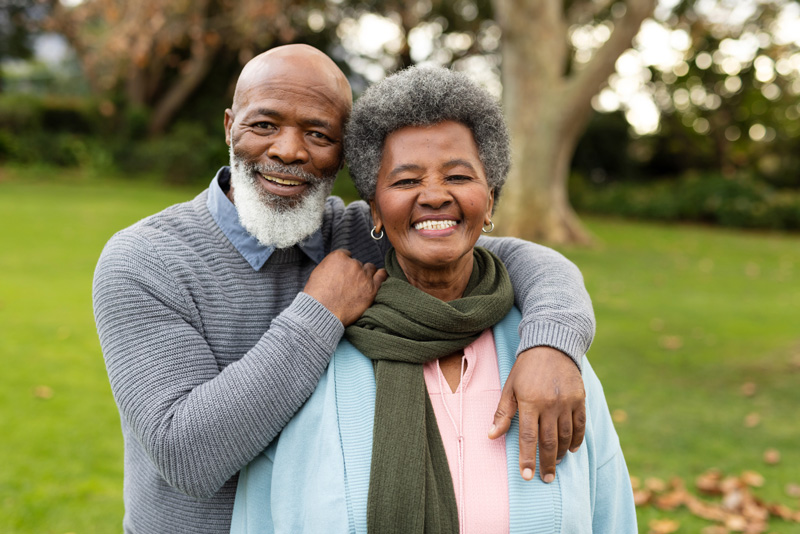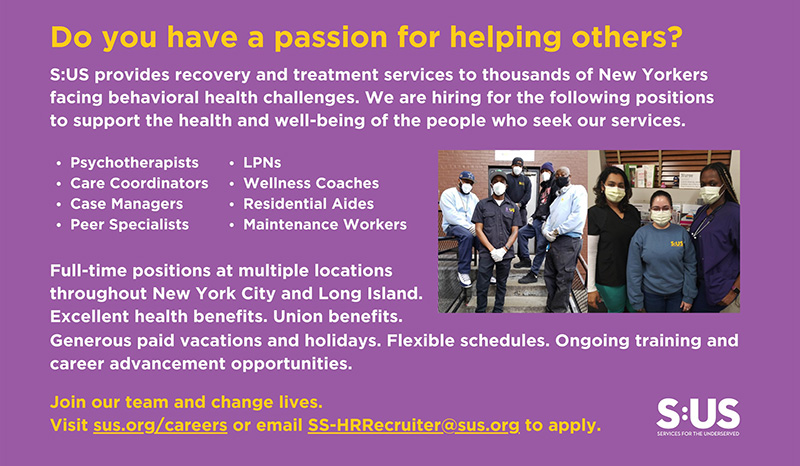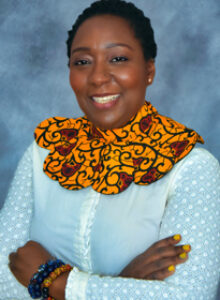Services for the UnderServed (S:US) is one the largest community-based, health and human services organizations in New York State and intentionally works daily to “right” societal imbalances by providing comprehensive and culturally responsive programming. The need to fulfill its mission of driving scalable solutions and transforming lives and communities means approaching care for people served in a manner that not only acknowledges their multiple identities but also the critical role of blood or chosen families in the treatment process. Over 90% of the people served and employed by S:US identify as Black, Indigenous, People of Color (BIPOC). According to SAMSHA’s 2018 National Survey of Drug and Health, 16 percent (4.8 million) of Black and African American people reported having a mental illness, and 22.4 percent of those (1.1 million people) reported a severe mental illness over the past year and (SMI) rose among people of all ages, Black and African American, between 2008 and 2018.1 It is also well established that Black and African American people living below the poverty level are twice as likely to report severe psychological distress than those living over two times (2x) the poverty level.2 Adult Blacks and African Americans are more likely to experience sadness, hopelessness, and worthlessness than adult whites,3 but sadly, many believe that discussions about mental illness would not be appropriate even among families.4 To compound matters even further, coping mechanisms for African people consist of either assimilating, overcompensating,5 or internalizing messages from western worldviews that are harmful to Black bodies.6

As service providers, we are responsible for finding effective ways to take care of BIPOC people who are living with different abilities. Carlton-LaNey refers to implementing culturally relevant responses to meet the unique needs of Black communities as “race work” and emphasizes its roles in collectively advancing social justice and changing community services.7 S:US starts the process of righting societal imbalances by acknowledging systems of power, knowledge, and culture that uphold coloniality which is the “long-standing patterns of power that emerged as a result of colonialism but that define culture, labor, intersubjective relations, and knowledge production well beyond the strict limits of colonial administrations.”8 Afrocentricity is one framework for an organization to consider as they develop programs to serve BIPOC people in their communities. The three objectives of Afrocentricity, as outlined by Schiele, are (1) to promote an alternative social science concept more aligned with the cultural and political reality of African Americans, (2) to refute damaging misrepresentations about people of African ancestry via spreading a worldview rooted in whiteness but unfortunately ingrained in many people of African descent, (3) to advance a worldview that fully supports human and societal change toward spiritual, moral, and humanistic ends that will encourage people of different cultural and ethnic groups to connect over a mutual interest.9 Dr. Karenga also operationalized the concept of Afrocentricity by developing the “Nguzo Saba” which means seven principles in Swahili as the matrix and a minimum set of values people of African descent who are now Americans can use to reconstruct their lives to mirror Afrocentric families, communities, and culture.10 Here is how S:US is using the Nguzo principles as outlined by Dr. Karenga as our foundation to build programs that effectively address the needs of BIPOC people:
- Umoja (Unity): to strive for and maintain unity in the family, community, nation, and race. S:US’ work is centered around community building, helping persons served restore any desired link with their natural or chosen family. Our services encourage staff’s collaboration with persons served’s identified support unit and connecting persons served to larger affinity groups to explain the ramifications of systemic oppression for marginalized groups. The ultimate goal for S:US is to help foster in persons served, family, and community partners the spirit of becoming agents of change to disrupt systems of inequities.
- Kujichagulia (Self-Determination): to define ourselves, name ourselves, create ourselves, and speak for ourselves. S:US demonstrates this value by intentionally seeking the voices of people served and encouraging them to be the subject in their journey to recovery. These voices are present in developing service/treatment plans and spaces where discussions are happening about programming, satisfaction with services, and advocacy. Sharing power with persons served is an effective way of disrupting systems of power which is one of the pillars of coloniality.
- Ujima (Collective Work and Responsibility): to build and maintain our community together and make our brothers’ and sisters’ problems our problems and solve them together. S:US explores the concept of interdependency with families, persons served, staff, local partners, etc. One of our core values—having a supportive culture aligns with this Ujima principle and is illustrated by centering our diversity, equity, inclusion, and belonging efforts around resources for persons served and staff to experience growth through the established process of mutuality. One example is our community street outreach efforts to support our brothers and sisters struggling with substance use and mental health challenges but don’t trust the system of care.
- Ujamaa (Cooperative Economics): to build and maintain our stores, shops, and other businesses and profit from them. S:US develops community programs to enhance the communities where we are located and offer services. One example is our Urban Farms that provide therapeutic horticulture, nutritional programming, and employment opportunities through workshops and hands-on experiences to people served living in various New York City communities. Persons served not only have the option to earn income but also provide healthier food for their loved ones and the community.
- Nia (Purpose): to make our collective vocation the building and developing of our community to restore our people to their traditional greatness. S:US exemplifies “Nia” daily through the provision of rehabilitation services in our day habilitation programs, clubhouse, etc. Persons served are achieving personal milestones allowing them to elevate their sense of agency and fulfill life roles. Creating opportunities for all (persons served, their families, and our staff) is seen in the myriad of traditional and non-traditional services provided across S:US.
- Kuumba (Creativity): to always do as much as we can, in the ways we can, to leave our community more beautiful and beneficial than we inherited it. S:US continues to replace empty neighborhood lots with beautifully designed and environmentally friendly buildings to house families with a history of homelessness. S:US’ Housing Division consists of 120 buildings owned, managed, or leased in New York City; has developed 19 Low Income Housing Tax Credit (LIHTC) buildings with 1,139 units of supportive and low-income housing owned and operated by the organization, and currently has 1800+ units in development or under construction. S:US also recently added community fridges for people to help themselves to nutritious food in a dignified manner and lending libraries.
- Imani (Faith): to believe with all our heart, our parents, our teachers, our leaders, and the righteousness and victory of our struggle. Despite operating within various systems of oppression, S:US envisions a city where everyone has a roof over their head, is healthy, productive and can enjoy the social connections that create a life of purpose. S:US’ staff reports to work daily with the commitment, dedication, and conviction that they are righting societal imbalances through their actions.
Providing social services to honor the full agency of people served, families, and the community requires a commitment and a philosophy that motivates people to persist despite challenges. To succeed, organizations must ground their work in the principles of Nguzo Saba which honor the dignity of every human being and encourages mutual and respectful relationships that are centered on the interconnectedness of our humanity. S:US’ core values—respect for all, integrity in all actions, maximizing individual potential, continuous quality improvement and supportive culture—and commitment to create opportunities for all, are the frameworks that guide our daily work of promoting interdependence and righting societal imbalances.
Dr. Nadjete Natchaba, Ed.D, LCSW, MPA, has been working with people living with mental illness, substance use disorder and homelessness for over 20 years as a clinician, administrator, and executive in Human Services. Dr. Natchaba currently works at Services for the UnderServed (S:US), a nonprofit organization with a staff of 1,800 that provides $245 million in services. In her role as Chief Operating Officer, she leads a team of devoted clinicians and administrators managing Assertive Community Treatment teams, Certified Community Behavioral Health Clinics, Home and Community Based Services, Care Coordination Services, shelters for single adults and families, and crisis respite residences.
Dr. Natchaba joined the Silberman School of Social Work at Hunter College as a faculty member teaching fundamental courses in the MSW program to expand her work of preparing our workforce to “show up” for people served. Dr. Natchaba is also a member of National Association of Black Social Workers and a graduate from the African Centered Academy.
Supporting the workforce at S:US and in the larger community is Dr. Natchaba’s way of living up to her core value of interdependency.
Footnotes
1. SAMHSA. (2018). National Survey on Drug Use and Health (NSDUH): African Americans. Retrieved from https://www.samhsa.gov/data/sites/default/files/reports/rpt23247/2_AfricanAmerican_2020_01_14_508.pdf
2. Center for Disease Control, (2018). Health United States, 2017. Table 46. Retrieved from https://www.cdc.gov/nchs/data/hus/hus17.pdf
3. Center for Disease Control, C. f. (2019). Summary Health Statistics: National Health Interview Survey: 2017. Table A-7. Retrieved from https://www.cdc.gov/nchs/nhis/shs/tables.htm
4. Williams, M. T. (2011). Why African Americans avoid psychotherapy. Psychology Today. Retrieved from https://www.psychologytoday.com/us/blog/culturally-speaking/201111/why-african-americans-avoid-psychotherapy
5. Almeida, R. V. (2019). Coloniality and intersectionality in social work education and practice. Journal of Progressive Human Services, 30(2), 148-164.
6. Mazama, A. (2011). The Afrocentric Paradigm: Contours and Definitions. Journal of Black, 402-420.
7. Carlton-La’Ney, I. (1999). African American social work pioneers’ response to need. Social Work, 311-322.
8. Maldonaldo-Torres, N. (2007). On the coloniality of being: Contributions to the development of a concept. Cultural Studies, 21, 240-270. doi:10.1080/09502380601162548
9. Schiele, J. H. (1996). Afrocentricity: An emerging paradigm in social work practice. Social Work, 284-294.
10. Karenga, M. (1998). Kwanzaa: A celebration of family, community, and culture. Los Angeles: CA: Sankore Press.







